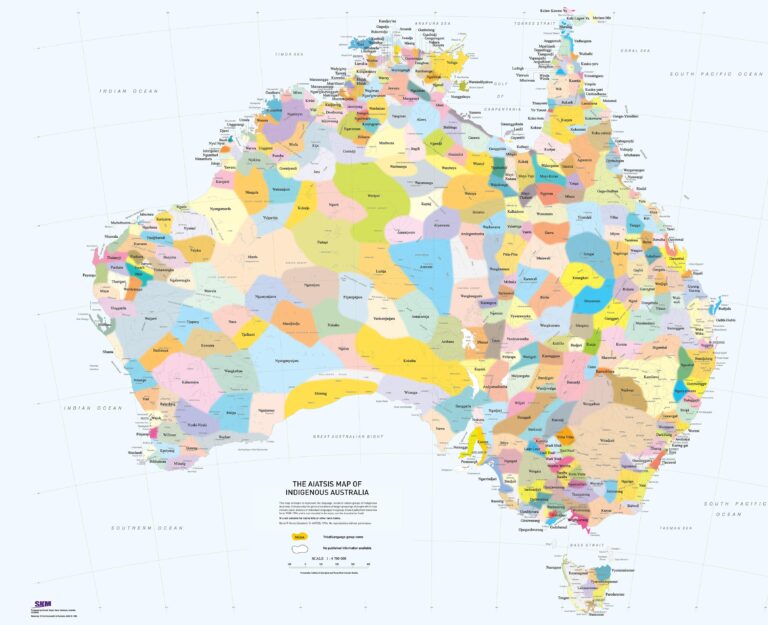Australia’s Referendum: A Turning Point for Indigenous Rights
In a significant chapter of Australia’s political history, the recent referendum concerning the Indigenous Voice to Parliament ignited widespread discussion and attracted international scrutiny. Although this vote was intended to enhance the portrayal of Indigenous Australians in legislative processes, its outcome has left many within these communities feeling disheartened and overlooked. As reflections on this event begin, it raises critical questions about what this means for ongoing efforts toward recognition and rights in a nation still confronting its colonial legacy. This article explores the responses from Indigenous leaders and communities, shedding light on what their silence may indicate for future conversations surrounding reconciliation and governance in Australia.
Referendum Results Reveal Deep frustration Among Indigenous Communities
The results of the recent referendum have unveiled profound dissatisfaction among Indigenous populations across Australia. Following a campaign that promised enhanced representation for these communities, the decisive rejection of proposed constitutional amendments has fostered feelings of exclusion and neglect. Key sentiments emerging from discussions with Indigenous leaders include:
- Disappointment regarding unfulfilled promises related to reconciliation.
- Skepticism about genuine governmental engagement with their concerns.
- A call for significant actions rather than mere symbolic gestures.
A wave of “silence” is now being articulated by many Aboriginal Australians post-vote—a sentiment that encapsulates not only disappointment but also an urgent demand for government prioritization on issues affecting them through actionable strategies. As dialogues evolve, there is an evident push to transcend rhetoric and tackle systemic challenges faced by these communities head-on. Recent surveys underscore pressing areas needing attention:
| Concern Area | Level of Community Concern |
|---|---|
| Access to Healthcare Services | Critical High |
| Educational Opportunities Available | Crisis Level |
community Activists Call for Action Amid Political Inaction
The aftermath of the national vote has seen numerous community leaders expressing their frustration over what they perceive as a glaring absence of response from political figures regarding Indigenous rights issues. The referendum aimed at embedding Aboriginal and Torres Strait islander voices into constitutional law has intensified calls for concrete measures instead of empty promises. Activists view this silence as not merely disappointing but as a betrayal against commitments made during electoral campaigns; they insist that political representatives must engage directly with local communities to address persistent inequalities faced by Aboriginal Australians.
A surge in grassroots movements is evident as local organizations mobilize protests and community forums designed to amplify Indigenous voices amidst perceived governmental inertia. The demands are diverse yet focused on critical areas such as education access, healthcare improvements, and social justice reforms. community members are advocating immediate government initiatives including:
- Additional funding </strongfor health services tailored specifically towards indigenous needs;
- The introduction​of culturally relevant educational programs​in schools;
- Laws reforming land rights​to empower local governance structures;
- sustained support ​for initiatives led by indigenous peoples​that foster economic growth​and social equity.
The disparities between resources allocated to indigenous versus non-indigenous populations highlight urgent needs requiring immediate action from authorities:
| Resource Category | Indigenous Funding Allocation | Non-Indigenous Funding Allocation | |
|---|---|---|---|
| Healthcare Services | $1,500 per person   | $3,600 per person   | |
| Education Funding   | $7,000 per student   | $13,500 per student   | |
| Housing Conditions     | %40 overcrowded     | %5 overcrowded     |
Strategies For Enhanced Representation And Engagement Of Indigeneous Peoples In Governance Processes
Pursuing meaningful representation requires a thorough strategy aimed at increasing involvement within legislative frameworks across Australia . First , enhancing<strong parliamentary representation through reserved seats specifically designated for indigenous representatives will be essential . This can be accomplished via :
- Establishing dedicated parliamentary seats exclusively reserved ​for indigenous representatives ;
- Forming partnerships with established indigenous organizations aimed at identifying capable candidates ;
- Launching mentorship programs designed specifically ​to cultivate future generations’ leadership skills among aboriginal youth .
Moreover ,ensuring active participation from aboriginal groups during decision-making processes guarantees respect towards their perspectives . This could involve :
- < li conducting regular consultations involving various stakeholders representing different aspects impacting policies affecting them ;
< li Developing co-design frameworks empowering aboriginal individuals throughout program/service development stages ;
< li Allocating funds directed towards community-led projects prioritizing solutions originating directly from those affected themselves.
| / tr >/thead |
|---|




